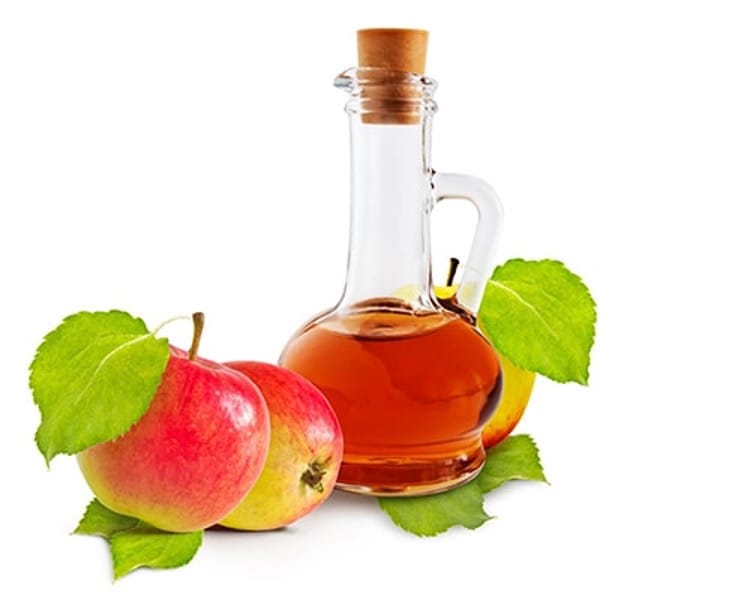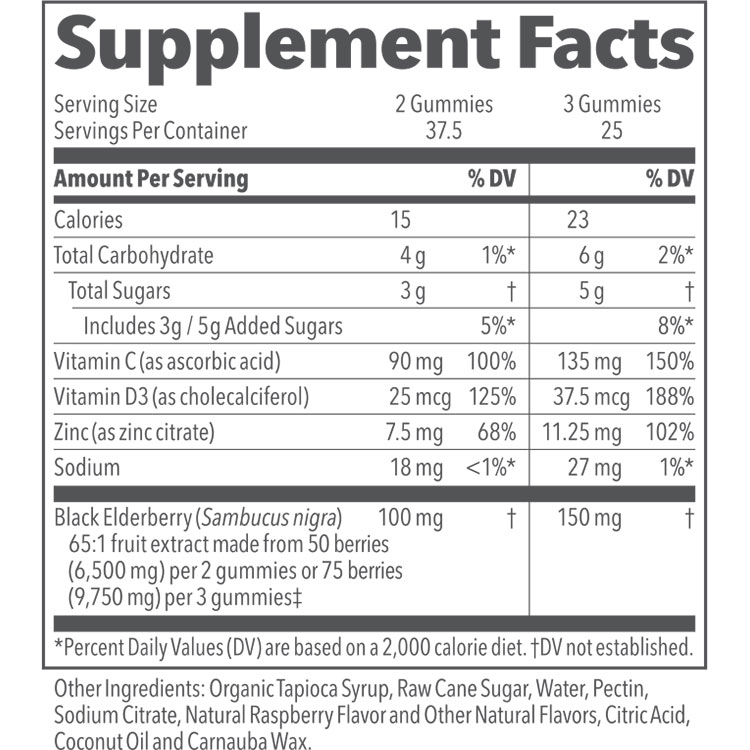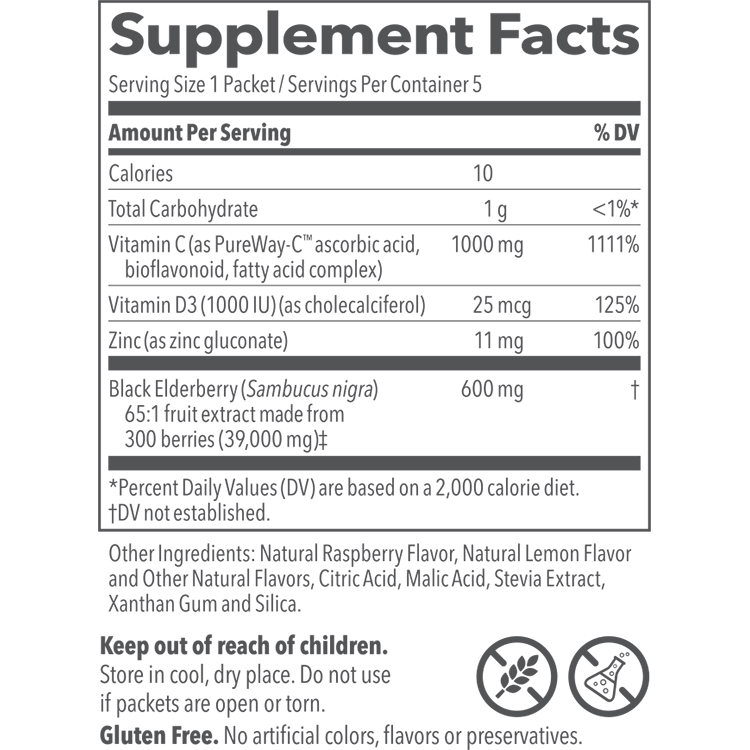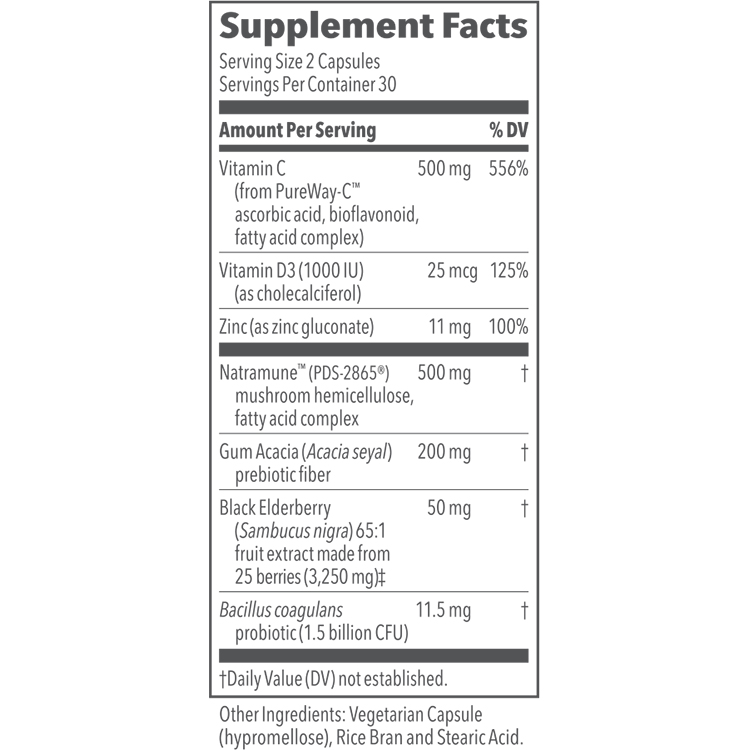BACKGROUND
Ingredient Type: Botanical
Also Known As: Cider vinegar

Apple cider vinegar is an unfiltered, non-alcoholic aqueous extract fermented from crushed apples. Apples are commonly grown in most countries with China, Europe, and the United States being at the top of the list.
Being derived from apples, similarly to apple juice, apple cider vinegar can contain pectin, various B vitamins (Thiamin – B1, Riboflavin – B2, Niacin – B3, Pantothenic Acid – B5, Pyridoxine – B6, Biotin – B7, Folic Acid – B9) along with vitamin C, acetic acid, bacteria, and citric acid. Trace amounts of minerals can also be found at various levels such as sodium, phosphorous, potassium, calcium, iron, and magnesium (11, p.5-8).
TRADITIONAL USES
Historically vinegar or vinaigre, “sour wine” in French, was used both commercially and personally for a variety of purposes anywhere from industrial applications to treating infections and alleviating pain as experienced by Hippocrates during his practice in 400BC. For centuries, apple cider vinegar has been known not only as an integral ingredient in many culinary dishes but an essential one in supporting overall health. Historically vinegar was used heavily as an antiseptic. In biblical times, vinegar was often used as a healing dressing on wounds. During the Great Plague of Europe, robbers used vinegar to protect themselves from the plague victims of whose homes they robbed. During the Civil War, vinegar was also routinely used as a disinfectant on wounds (7).
WHAT DOES SCIENCE TELL US?
Apple Cider Vinegar Possibly Helps Support Blood Sugar Regulation:
With diabetes on the rise globally, more emphasis is being placed on seeking alternative treatments to help the body with modulating blood sugar levels. The hormone which is responsible for blood sugar balance is insulin. In Type 1 Diabetics, the body is unable to produce insulin. In individuals with Type 2 Diabetes, the body is either unable to produce enough insulin to respond to the body’s demands or unable to properly utilize the insulin being produced. Along with blood sugar regulation through diet, exercise, and medications where appropriate, some evidence suggests vinegar, more specifically apple cider vinegar to be beneficial in controlling and balancing blood sugar levels.
One study examined the effects of apple cider vinegar in both normal and diabetic rats. The efficacy was determined by measuring the fasting blood glucose (FBG) levels, the glycated hemoglobin (HbA1c) and the lipid profiles of the normal and diabetic test groups. Both groups were fed a standard animal diet appropriate for their species along with 6% apple cider vinegar for 4 weeks. The results of this study showed that apple cider vinegar is an effective alternative for improving the serum lipid profiles for both the normal and diabetic test groups; with blood sugar level reductions noted in the diabetic rats and more balanced cholesterol ratios in the normal rat test group (1).
Another study looked at the efficacy of consuming apple cider vinegar with a cheese snack prior to bedtime. Four men and seven women, clinically diagnosed with type 2 diabetes, who were not taking insulin participated in the study. Utilizing a randomized crossover study with a 3 to 5-day washout period between treatments, each participant following a standardized meal plan while consuming either 2 Tbsp of apple cider vinegar or water at bedtime along with 1oz of cheese. At the conclusion of this study, the fasting glucose had a noted reduction of 15 mmol/l (2%) and 0.26 mmol/l (4%) for the placebo and vinegar treatments, respectively. From the results, it was concluded that apple cider vinegar consumption pointed significantly to lowering fasting blood glucose levels the following morning (2).
A third study investigated the use of apple cider vinegar in attenuating glucose and insulin responses of individuals with varying degrees of insulin sensitivity or resistance, as well as those present with type 2 diabetes. The fasting subjects from each test group were randomly assigned to consume a drink composed of 20g of apple cider vinegar, 40g of water and 1 tsp of saccharine or the placebo drink prior to consuming a test meal which composed of a white bagel, butter and a glass of orange juice; totaling in 87g of carbohydrates. Blood samples were collected at fasting and 30 and 60min post-meal for glucose and insulin levels. Compared to the controls, the fasting glucose controls were elevated 55% in the diabetic test group while the insulin concentrations were elevated 95-115% in the insulin resistant or type 2 diabetic test groups. Consumption of apple cider vinegar raised whole-body insulin sensitivity about 34% (P = 0.01). The results found that apple cider vinegar significantly reduces the postprandial fluxes of insulin and glucose in insulin-resistant subjects while affecting whole-body insulin sensitivity in subjects with type 2 diabetes (3).
Apple Cider Vinegar Possibly Helps Support Healthy Cell Growth:
One case-control study investigated the potential risk factors in Linzhou, China, resulting in a high incidence of oesophageal cancer. The Linzhou Cancer Registry was used to identify cancer cases between 30- and 75-year old individuals. A total of 211 cases and 633 controls were interviewed. With socio-economic factors being one of the strong associations with a decreased cancer risk, consuming non-tap water increased cancer risk while those consuming beans, vegetable and vinegar as part of their standard diet tended towards a reduced risk of oesophageal cancer (4).
According to one article, naturally fermented vinegar such as Kibizu (sugar cane vinegar – Japan), Kurozu (black rice vinegar – Japan) and red wine vinegar out of Italy have notable radical-scavenging activity. In this study, naturally fermented vinegar was studied to determine the efficacy of its ability to induce apoptosis in the human leukemia cell HL-60. The vinegar used in this study was the sugar cane vinegar, Kibizu. Through assessments via FACS analyses, electron microscopic observations and cytochemical staining of the chromatin and nuclear segments of the human leukemia HL-60 cell, it was concluded that apoptosis was induced by the fraction of Kibizu, resulting in repression of growth of the human leukemia cell (5).
A third study was performed on F344 rats to test the efficacy of Kurosu, a vinegar from unpolished rice, against colon carcinogenesis. The F344 rats were given 2 weekly injections of the AOM – azoxymethane-induced carcinogenesis solution along with drinking water containing varying dilutions of the Kurosu extract. According to the results, the administered EK significantly inhibited the incidence and growth of colon adenocarcinoma in the F344 rat rest group (P < 0.05), compared with the untreated AOM control group. These findings suggest potential efficacy of Kurosu in inhibiting colon carcinogenesis (6).
Apple Cider Vinegar Possibly Helps Support Weight Loss:
A study was performed on a group of high-fat-fed mice to assess the effect that acetic acid has on obesity prevention. The mice were administered 0.3% water or 1.5% acetic acid intragastrically for 6 weeks along side of their high-fat diet. The results obtained from this study found that the mice administered with acetic acid experienced inhibited the accumulation of body fat and hepatic lipids vs the control group; without changing food consumption or skeletal muscle weight. The researchers found a link between acetic acid consumption and significant expression of genes in the liver responsible for fatty-acid-oxidation and thermogenesis (10).
Apple Cider Vinegar Possibly Has Anti-Microbial Properties:
For thousands of years, vinegar, a weak acid, has been used as an antiseptic and an astringent. Ongoing studies continue to prove its effectiveness, supporting why this was one of Hippocrates most prized and consistent remedies to treat his patients (7).
In this study, bacteriostatic and bactericidal actions of vinegar were analyzed on various strains of the foodborne pathogenic bacteria E. coli (O157:H57, O26:H11, O111: HNM, O111:K58) in conjunction with a series of variables: acetic acid concentration, sodium chloride concentration, glucose concentration, temperature, incubation time and viable cell number. Using a solution with a 0.1% concentration of acetic acid, growth was assessed. Growth inhibition was increased in the presence of sodium chloride, glucose and increased temperature; irrespective of the inoculum size. The results did, however, differ based on the growth phase of the cells; where logarithmic growth phase cells were more sensitive than stationary cells. They found that under the right temperature, a combination of sodium chloride and vinegar was found to be most effective in combating the food-borne pathogenic bacteria (8).
An additional study evaluated the antibacterial efficacy of irrigating solutions against root canals contaminated with Enterococcus faecalis. Various solutions were used to assess their effectiveness: sodium hypochlorite solution, sodium hypochlorite with citric acid, sodium hypochlorite with apple cider vinegar, apple cider vinegar, chlorhexidine solution, peracetic acid and saline solution. In the study, 110 single-rooted human teeth were inoculated with E. faecalis and incubated for 21 days. The teeth were divided into groups based on the irrigation group. The results found that all groups were effective in reducing the presence of E. faecalis although not completely eradicating it in the root canal system (9).
SAFETY
Interactions:
Major
- Various studies show marked anti-glycemic effects of vinegar in insulin-resistant and glucose tolerant subjects (2,3,12). It is recommended to practice caution when consuming apple cider vinegar in order to help balance or reduce blood sugar levels in the body. The combination of apple cider vinegar and insulin or any of the noted anti-diabetic drugs can cause excessive drops in blood sugar levels. Common Anti-diabetic drugs: Glimepiride (Amaryl), Glyburide (DiaBeta Glynase PresTab, Micronase), Insulin, Pioglitazone (Actos), Rosiglitazone (Avandia), Chlorpropamide (Diabinese), Glipizide (Glucotrol), Tolbutamide (Orinase).
- One study reported 28-year-old women who had reportedly consumed 250ml of apple cider vinegar daily for six years experienced hypokalemia (13). Although speculative, potential decreases in potassium levels can pose a concern for those on various heard disease medications such as Digoxin (Lanoxin) as well as those taking diuretics such as: Chlorothiazide (Diuril), Chlorthalidone (Thalitone), Furosemide (Lasix), Hydrochlorothiazide (HCTZ, HydroDiuril, Microzide). As potassium helps to maintain fluid osmolarity in the body, fluctuations in this balance or ratio can result in dehydration, syncope or bradycardia. The effects of acetic acid and vinegar were studied on spontaneously hypertensive rats with a significant reduction in their systolic blood pressure. It was noted that the acetic acid promoted calcium absorption, thereby downregulating the rennin-angiotensin system which is responsible for blood sugar regulation and fluid balance (14).
Moderate
- There are suspicions of vinegar causing ulcerative injury to the oropharynx and esophagus. One case study reported a 39-year-old who consumed vinegar in order to help dislodge a crab shell from her throat. It was not known whether the shell had lacerated the lining of her throat prior to consuming the vinegar. An endoscopy confirmed inflammation of her oropharynx and second-degree caustic burns of the esophagus extending to the cardia (15).
Side-Effects:
- In the case of the 28-year-old female who consumed 250ml of apple cider vinegar daily for six years, unintentional aspiration of vinegar had been noted with laryngospasm and subsequent vasovagal syncope which was later resolved (13).
REFERENCES
- Shishehbor F, Mansoori A, Sarkaki AR, Jalali MT, Latifi SM. Apple cider vinegar attenuates lipid profile in normal and diabetic rats. Pak J Biol Sci. 2008 Dec 1;11(23):2634-8. PMID:19630216
- Johnston C, White A. Vinegar Ingestion at Bedtime Moderates Walking Glucose Concentrations in Adults with Well-Controlled Type 2 Diabetes. Diabetes Care. 2007 Nov; 30(11):2814-15. https://doi.org/10.2337/dc07-1062
- Johnston C. Kim C, Buller A. Vinegar Improves Insulin Sensitivity to a high-carbohydrate meal in subjects with insulin resistance or Type 2 Diabetes. Diabetes Care. 2004 Jan 27(1):281-282. https://doi.org/10.2337/diacare.27.1.281
- Xibib S, Meilan H, Moller H, Evans HS, Dixin D, Wenjie D, Jianbang L. Risk factors for oesophageal cancer in Linzhou, China: a case-control study. Asian Pac J Cancer Prev. 2003 Apr-Jun 4(2):119-24. PMID:12875624
- Mimura A, Suzuki Y, Toshima Y, Yazaki S, Ohtsuki T, Ui S, Hyodoh F. Induction of apoptosis in human leukemia cells by naturally fermented sugar cane vinegar (kibizu) of Amami Ohshima Island. Biofactors. 2004;22(1-4):93-7. PMID:15630260
- Shimoji Y, Kohno H, Nanda K, Nishikawa Y, Ohigashi H, Uenakai K, Tanaka T. Extract of Kurosu, a vinegar from unpolished rice, inhibits azoxymethane-induced colon carcinogenesis in male F344 rats. Nutr Cancer. 2004;49(2):170-3. PMID:15489210.
- Bhattacharya S. Wound healing through the ages. Indian J Plast Surg. 2012 May-Aug; 45(2): 177-179. PMID:23162212
- Entani E, Asai M, Tsujihata S, Tsukamoto Y, Ohta M. Antibacterial action of vinegar against food-borne pathogenic bacteria including Escherichia coli O157:H7. J Food Prot. 1998 Aug;61(8):953-9. PMID:9713753
- Dornelles-Morgental R, Guerreiro-Tanomaru JM, de Faria-Junior NB, Hungaro-Duarte MA, Kuga MC, Tanomaru-Filho M. Antibacterial efficacy of endodontic irrigating solutions and their combinations in root canals contaminated with Enterococcus faecalis. Oral Surg. Oral Med. Oral Radiol. Endod. 2011 Sep;112(3):396-400. PMID:21531598
- Kondo T, Kishi M, Fushimi T, Kaga T. Acetic Acid Upregulates the Expression of Genes for Fatty Acid Oxidation Enzymes in Liver to Suppress Body Fat Accumulation. Journal of Agriculture and Food Chemistry. 2009 May; 57(13):5982-6. DOI:10.1021/jf900470c
- Thacker, E. (2006). The vinegar anniversary book (3rd ed., Vol. 1). North Canton, OH: James Direct Inc.
- Ostman E, Granfeldt Y, Persson L, Bjorck I. Vinegar supplementation lowers glucose and insulin responses and increases satiety after a bread meal in healthy subjects. Eur J Clin. Nut. 2005; 59:983-88. PMID:16015276
- Lhotta K, Hofle G, Gasser R, Finkenstedt G. Hypokalemia, hyperreninemia and osteoporosis in patient ingesting large amounts of cider vinegar. Nehpron. 1998; 80:242-43. PMID:9736833
- Kondo S, Tayama K, Tsukamoto Y, Ikeda K, Yamori Y. Antihypertensive effects of acetic acid and vinegar on spontaneously hypertensive rats. Biosci. Biotechnol. Biochem. 2001 Dec;65(12):2690-4. PMID11826965
- Chung CH. Corrosive oesophageal injury following vinegar ingestion. Hong Kong Med. J. 2002 Oct; 8:365-6. PMID:12376715




